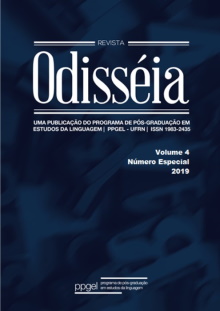Theoretical and empirical challenges in the Cognitive-Functional Linguistics
DOI:
https://doi.org/10.21680/1983-2435.2019v4nEsp.ID17787Keywords:
Cognitive-Functional Linguistics, Empirical challenges, Possible solutionsAbstract
Cognitive-Functional Linguistics represents a relatively recent union between two theoretical approaches: North-American Functional Linguistics and Cognitive Linguistics, in particular, Construction Grammar, based on Traugott and Trousdale (2013) and Hilpert (2014). In this paper, we bring theoretical and analytical reflections to some of the empirical challenges we have dealt with in ongoing studies of our Research Group Discurso & Gramática, such as: 1) the adaptation of the Constructionalization and Constructional Changes model for synchronous data; 2) the place of variation in the Constructional Grammar approach; 3) the need for a theoretical refinement to describe changes in different hierarchical levels; 4) the apparent imprecision on the description of the functional axis in the constructional hierarchy, in which meaning and function have usually been treated as interchangeable terms. We believe that it is a necessary discussion for a grammar model that intends to describe the totality of the speaker’s linguistic knowledge.
Downloads
Downloads
Published
How to Cite
Issue
Section
License
Thisa work has been licensed under Creative Commons - Atribuição - NãoComercial - CompartilhaIgual 3.0 Não Adaptada.


















